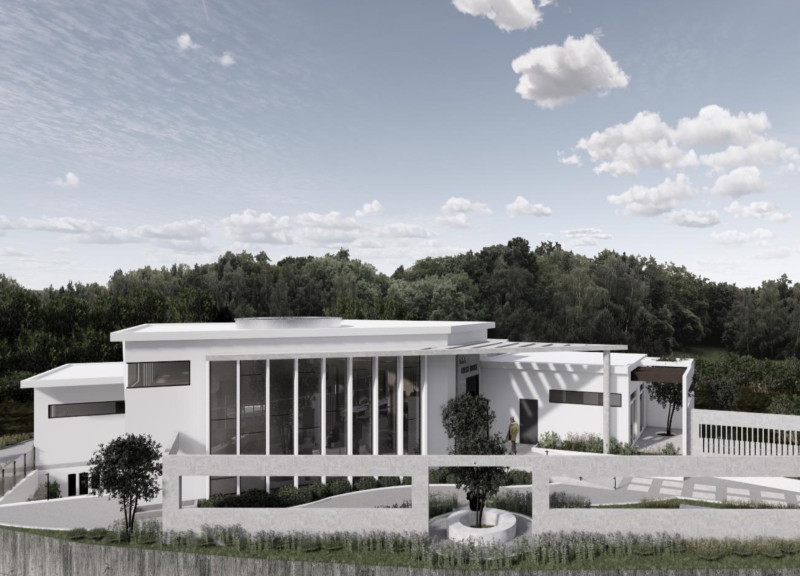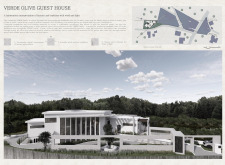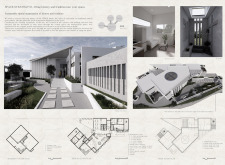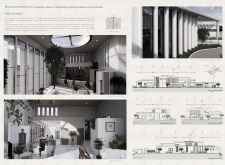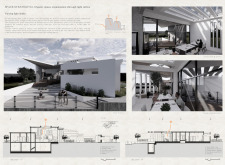5 key facts about this project
### Project Overview
Located in central Portugal, the Verde Olive Guest House serves as an accommodation designed for the Verde family, renowned for their traditional olive oil production. This guesthouse reflects the family’s commitment to heritage and sustainability, aiming to create a connection between guests and the natural landscape, as well as the cultural significance of olive oil production.
### Spatial Strategy and User Experience
The design employs a sustainable spatial organization that leverages the site's topography to maximize natural lighting and ventilation. Pathways guide visitors through the surrounding gardens and shared areas, promoting exploration and interaction with the environment. Central to the layout is the multipurpose space, which functions for multiple activities including tastings and dining, characterized by high ceilings and open plans that enhance spatial perception. Guest quarters are designed for comfort and privacy, maintaining intimacy while offering direct access to common areas. Additionally, designated spaces for prayer and reflection connect visitors to the site's historical context.
### Materiality and Environmental Integration
Material selection emphasizes durability and compatibility with the local landscape. Concrete provides structural integrity, while expansive glass surfaces optimize natural light and establish continuity between indoor and outdoor environments. Natural stone is strategically used to evoke traditional olive oil production, enhancing the overall aesthetic. Integrated sustainability features include rainwater harvesting systems, efficient irrigation, and energy conservation measures achieved through high-quality insulation and advanced glazing. Such considerations ensure minimal environmental impact while fostering a harmonious coexistence with nature.


